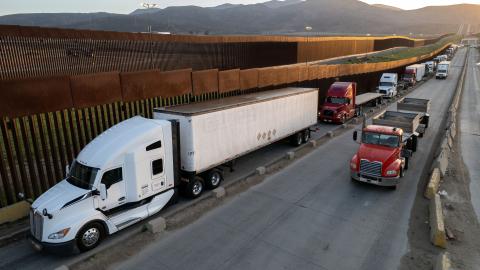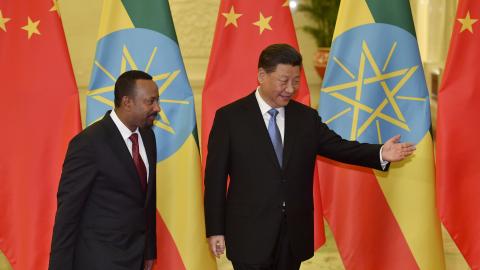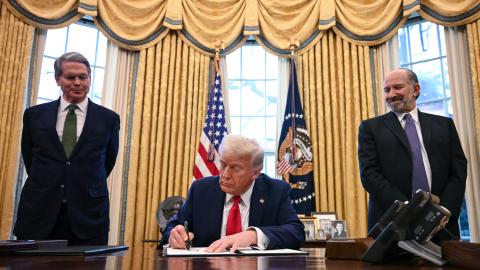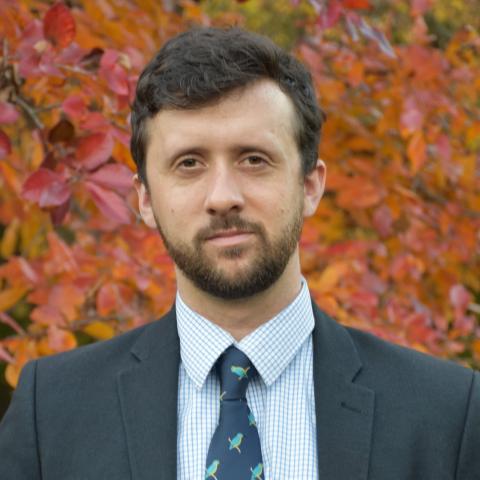This week, the U.S. will launch its tentpole effort at restoring global democracy to a firm footing. The Summit for Democracy, which will bring together dozens of the world’s remaining democracies, will focus on a handful of planks—including, according to the State Department, “fighting corruption.” The opening salvo of this effort came early on Monday morning with the release of the first ever US Strategy on Countering Corruption, a 38-page roadmap for improving government capacity, curbing illicit finance, holding corrupt actors accountable, renewing multilateral efforts, and leveraging diplomacy and foreign assistance to advance policy goals.
Centering efforts to combat corruption is, of course, a positive sign. Not only does it fit a rising awareness of linkages between corruption and autocracy, but it’s also of a piece with the broader efforts to recognize corruption as a national security threat. As such, an emphasis on combating corruption at the upcoming Summit is a welcome development.
Moreover, the United States has a clear leadership role when it comes to global anti-corruption efforts – and a clear legacy it can point to. Innovative legislation such as the Foreign Corrupt Practices Act, Bank Secrecy Act, USA PATRIOT Act, and Global Magnitsky Act all set new global standards. Just as importantly, America has always been in a league of its own when it comes to enforcing these landmark laws, spearheading high-level prosecutions and unleashing targeted sanctions at a greater clip than any other country. From Beijing to Caracas, kleptocrats have operated and grown with impunity in recent decades—unless and until U.S. law enforcement comes knocking.
But framing corruption and kleptocracy as something to be tackled in countries elsewhere risks missing the forest for the trees of modern corruption. Contemporary corruption—especially that linked to powerful regimes like China, Russia, Iran or Venezuela—transcends borders. Tied to oligarchs and officials alike, that corruption burrows into open economies, tilting free markets and undercutting democratic movements as it goes. And unfortunately, much of that illicit wealth is washed clean in the same jurisdiction that’s hosting the Summit itself: the U.S.
The notion of the global anti-corruption leader being, simultaneously, the primary provider of pro-kleptocracy services may seem jarring. But cast an eye across the country—across states, across industries, across loopholes and exemptions that together attract staggering inflows of dirty money— and that image begins to shift.
First, there are the states that have quietly become outposts for illicit and ill-gotten wealth. States like Delaware, Nevada or Wyoming, which in their push to attract incorporation fees perfected anonymous shell companies—the building blocks of transnational corruption that were finally banned by Congress in January. Others have launched new tools like anonymous trusts for global offshoring clientele, with wealthy figures linked to the Chinese Communist Party taking full advantage.
But maybe it’s not fair to pick on states themselves. After all, an entire potpourri of American industries have taken full advantage of servicing anonymous wealth. Thanks to a series of “temporary” exemptions from important bipartisan (and unprecedented) anti-money laundering legislation—now decades old in some cases— things like American real estate, private equity and hedge funds, and luxury goods dealers have spent years transforming this illicit wealth into legitimate, untraceable assets. These industries, which have serviced everyone from sanctioned regimes in Tehran to sanctioned oligarchs out of Russia, have become laundering empires of their own, and have successfully stonewalled any efforts at reform.
While the FBI has begun raising concerns about things like private equity and hedge funds, and while luxury goods dealers and others can sense regulatory change in the air, it’s American real estate that’s become the biggest sponge soaking up the laundered money across the country. Keeping track of the anti-democratic (and often anti-American) regimes that have plowed money into American real estate—from Cambodia and the Congo, from Equatorial Guinea and Venezuela, from Russia and Kuwait and Rwanda—is an exercise in exhaustion. And those are only the ones we know about.
Even though a federal pilot program demanding transparency has proven successful in a small range of locales (including places like New York, Miami, and Los Angeles) the remainder of the country remains wide open for kleptocrats to launder their funds. And we’re only just beginning to see the fruits of such regulatory failures; as recent DOJ filings detail, one of Ukraine’s most notorious oligarchs not only became the biggest commercial real estate holder in Cleveland, Ohio, but snapped up multiple factories and plants around the American Midwest, all part of a broader alleged laundering scheme which saw those factories and plants sag into oblivion. This case, along with many others, illustrates how trans-national corruption is no longer a distant problem involving abstract amounts of money. Instead, it has now become a threat to the livelihoods, safety and security of ordinary Americans in places like the American Midwest and Rust Belt – a reality that is becoming easier to trace with every new case.
All of this depends upon the skills of the so-called “enablers”: the small but deeply harmful minority of U.S. professionals providing the services, the expertise, and the ability to navigate America’s porous anti-money laundering regime. The real estate agents, who can target jurisdictions beyond any transparency requirements. The accountants and private equity managers, who can steer the funds without any concomitant anti-money laundering requirements. And, perhaps most importantly, the lawyers and law firms that have become effective one-stop shops for kleptocrats, setting up the shells, the purchases, and the meetings—and who, uniquely, can shield their work behind claims of attorney-client privilege. It’s this latter industry that saw its secretive services spill out following the Pandora Papers, revealing itself to be, in many ways, the best friends these corrupt, kleptocratic figures could find.
All of these realities—the states refining the arts of anonymity; the industries transforming illicit wealth into legitimate, protected assets; the professionals steering corrupt clients toward any services they may require—add up to an unfortunate but clear picture. Modern kleptocrats increasingly use American tools against America itself, and against democracy more broadly. And the sooner American officials begin addressing this reality, the sooner the fight to preserve and promote democracy can succeed.
Thankfully, there are clear signs that the administration recognizes the role these have in fostering illicit activity abroad – and the responsibility the U.S. has in cleaning up these issues. Not only is the new U.S. Strategy on Countering Corruption the most detailed strategy document the U.S. (or any of its allies) has released to date, but it specifically addresses the policies and loopholes mentioned above. It also plants a clear flag about where things are going – and the steps necessary to get there.
Much work remains ahead, both domestically and internationally. But the new policy document not only addresses many of the clear issues in trans-national corruption – but goes a significant way to illustrating just how key American leadership will be in this fight, and to finally ending modern kleptocracy.


















